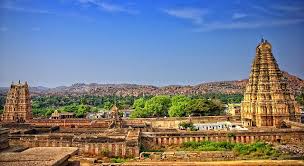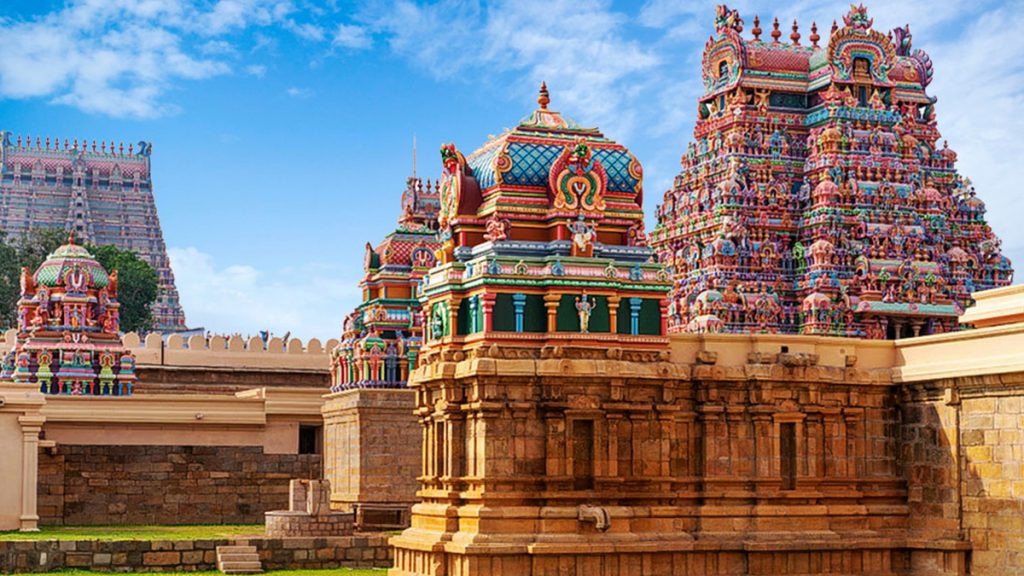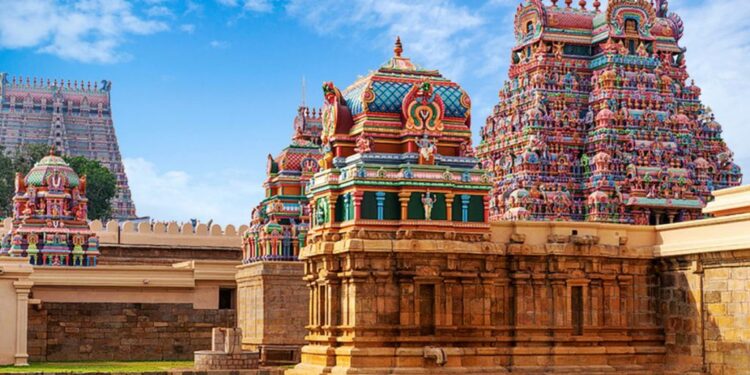For Non-Resident Indians (NRIs), reconnecting with their roots often involves rediscovering India’s vast cultural heritage. The country’s storied past, reflected in its architecture, traditions, and landscapes, beckons NRIs to explore its iconic destinations. These trips are more than vacations; they are a bridge to connect with ancestral history, rekindle cultural pride, and share a rich legacy with future generations. Here, we delve into the heritage destinations in India that NRIs are increasingly returning to explore, embracing their history from afar.
1. Varanasi: The Eternal City
One of the oldest continuously inhabited cities in the world, Varanasi holds unparalleled spiritual and cultural significance. For NRIs, this ancient city is a destination to connect with their spiritual roots. The Ganga Aarti at Dashashwamedh Ghat, the labyrinthine lanes filled with temples, and the vibrant bazaars evoke a sense of timelessness.
Varanasi offers an opportunity to experience the profound rituals of life and death, as the Ganges River continues to be a lifeline for millions. Whether it’s participating in religious ceremonies or simply reflecting on life by the ghats, Varanasi resonates deeply with NRIs seeking spiritual rejuvenation.
2. Rajasthan: The Land of Kings
Rajasthan’s majestic forts, opulent palaces, and vibrant culture make it a magnet for NRIs. Cities like Jaipur, Udaipur, and Jodhpur offer a glimpse into India’s royal heritage. The Amer Fort in Jaipur, the City Palace of Udaipur, and Mehrangarh Fort in Jodhpur stand as testaments to the grandeur of India’s past.
For NRIs, these destinations are more than architectural wonders—they symbolize India’s legacy of resilience and opulence. Experiencing traditional Rajasthani folk dances, camel rides in the Thar Desert, or staying in heritage hotels allows them to immerse themselves in regal traditions.
3. Hampi: A Window to the Vijayanagara Empire
Hampi, a UNESCO World Heritage Site in Karnataka, is a treasure trove of history. Once the flourishing capital of the Vijayanagara Empire, it now boasts magnificent ruins, temples, and monolithic sculptures that narrate tales of a bygone era.
For NRIs, Hampi represents an opportunity to explore India’s architectural brilliance and understand the socio-economic dynamics of ancient India. Walking through the Virupaksha Temple or marveling at the Stone Chariot in the Vittala Temple Complex allows visitors to step back in time.

4. Kerala: God’s Own Country
Kerala, known for its serene backwaters, lush greenery, and ancient traditions, is a favorite among NRIs. While the state is famous for its natural beauty, its cultural and heritage offerings are equally compelling. The ancient spice trade routes, Kathakali performances, and historic temples like Padmanabhaswamy Temple attract those seeking an authentic cultural experience.
The state also offers Ayurveda retreats, which have gained international acclaim. For NRIs, Kerala provides a harmonious blend of relaxation, cultural immersion, and an opportunity to reconnect with traditional Indian wellness practices.
5. Delhi: A Journey Through Centuries
Delhi, India’s capital, is a city where ancient history coexists with modernity. For NRIs, the city serves as a living museum, offering glimpses into different eras of Indian history. From the Mughal splendor of the Red Fort and Humayun’s Tomb to the British colonial architecture of Connaught Place, Delhi is a treasure trove of heritage.
The bustling lanes of Chandni Chowk, with its centuries-old shops and eateries, provide a sensory overload of flavors and traditions. Meanwhile, the Qutub Minar and India Gate remind visitors of India’s layered past and enduring resilience.
6. Amritsar: The Golden City
Home to the iconic Golden Temple, Amritsar is a spiritual and cultural hub for Sikhs and an essential destination for NRIs. The Harmandir Sahib, with its shimmering golden facade and serene sarovar (pool), offers a tranquil refuge for visitors seeking spiritual solace.
Amritsar also holds historical significance with the Jallianwala Bagh memorial, a poignant reminder of India’s freedom struggle. Additionally, the vibrant Wagah Border ceremony showcases the patriotic fervor shared by Indians worldwide, making it a must-visit for NRIs connecting with their homeland’s history and spirit.
7. Tamil Nadu: The Temple State
Tamil Nadu’s towering temples are architectural marvels and hubs of cultural activity. Temples like Meenakshi Amman in Madurai, Brihadeeswara in Thanjavur, and Shore Temple in Mahabalipuram reflect the artistic and spiritual brilliance of ancient Tamil culture.
NRIs often visit these destinations to experience their ancestral rituals and reconnect with the Dravidian heritage. Festivals such as Pongal and traditional music and dance performances like Bharatanatyam enhance the cultural experience, offering a profound sense of belonging.

8. Kolkata: The Cultural Capital
Known as India’s cultural capital, Kolkata boasts a rich literary and artistic heritage. For NRIs, the city represents an intellectual hub where traditions meet modernity. Landmarks like Victoria Memorial, Howrah Bridge, and the Indian Museum narrate the colonial and post-colonial history of India.
Durga Puja, Kolkata’s grandest festival, attracts NRIs who wish to experience the city’s vibrant cultural celebrations. The literary legacy of Rabindranath Tagore and Satyajit Ray’s cinematic brilliance further enhance Kolkata’s appeal as a destination that nurtures creativity and tradition.
9. Khajuraho: A Celebration of Art and Spirituality
The Khajuraho Group of Monuments in Madhya Pradesh is a UNESCO World Heritage Site renowned for its intricate temple carvings. These sculptures, which depict themes of love, devotion, and life, are a testament to India’s artistic and spiritual heritage.
For NRIs, Khajuraho offers a unique perspective on ancient Indian philosophy and aesthetics. The temples provide a rare opportunity to explore India’s openness and inclusivity in thought, which continues to inspire admiration globally.
10. Rishikesh and Haridwar: Spiritual Havens
Rishikesh and Haridwar, nestled along the banks of the Ganges River, are two of India’s most revered spiritual destinations. Known for yoga, meditation, and age-old traditions, these towns attract NRIs seeking inner peace and spiritual awakening.
The International Yoga Festival held annually in Rishikesh draws participants from around the world. Meanwhile, Haridwar’s Ganga Aarti at Har Ki Pauri offers a soul-stirring experience, reconnecting NRIs with their cultural and spiritual roots.
Embracing Heritage of India Through Travel
For NRIs, traveling to these heritage destinations is more than a journey—it’s a profound reconnection with their roots. These trips offer an opportunity to pass down traditions to the next generation, ensuring that India’s rich legacy continues to thrive across borders. Whether through spirituality, art, architecture, or history, these destinations bridge the gap between the past and the present, allowing NRIs to cherish their cultural identity while embracing India from afar.
In an era where global connections are celebrated, exploring these heritage sites reinforces a sense of belonging and pride. With every visit, NRIs contribute to the preservation and promotion of India’s unparalleled heritage, ensuring its legacy endures for generations to come.











